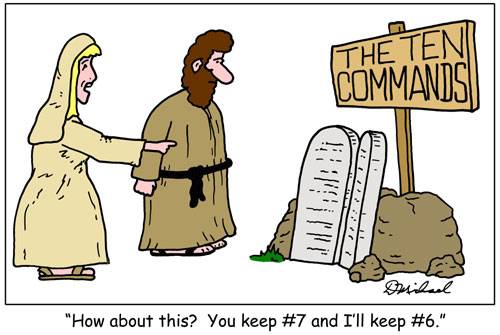 Even as broadcast television loses much of its influence amid the vast array of media vying for our attention, I usually devote a post or two to upcoming series, especially when there is something faith-focused which might interest readers here. In the latter case, God Friended Me is indeed returning for another season.
Even as broadcast television loses much of its influence amid the vast array of media vying for our attention, I usually devote a post or two to upcoming series, especially when there is something faith-focused which might interest readers here. In the latter case, God Friended Me is indeed returning for another season.
Today though, I want to focus on some shows which will not be returning.
I was sorry to see Abby’s cancelled by NBC. The program was a modern day version of Cheers with a few twists, the most significant of which was that the program was filmed in front of a live outdoor audience. You would think the novelty of that alone might have attracted more viewers, but the late-in-the-season start probably was its greatest challenge.
CBS cancelled Life in Pieces. Again, a show with a creative flair, consisting each week of four short skits interweaving characters from four families.
But most notably, ABC axed anything with kids in the cast. The Kids are Alright was set in a simpler time in the past — filmed in sepia tone for added emphasis — and portrayed a very typical devout Roman Catholic family of ten in the early 1970s. Fans of this show were very vocal when its impending demise was announced, and honestly, I was sure another network might pick this up the way FOX did with Last Man Standing.
ABC also ended Splitting Up Together. I realize that for Evangelicals, the premise of this one was a little suspect, but having watched most episodes, there was a quest to hold to some deeper values and principles, a flawed but earnest model of how to reconcile a broken marriage and deal with the damage done during the time apart.
I was less passionate about ABC ending Speechless, wherein Minnie Driver portrayed Maya, a totally-driven parent of a special needs child. I suppose with JJ moving off to university, some of the dynamic of the series — Maya’s interactions with JJ’s high school teachers as a best example — would be lost. Still, the show was groundbreaking for its portrayal of the challenges faced by a family with a son who has cerebral palsy, played by Micah Fowler, who knows that challenge firsthand…
…It was also the year that The Big Bang Theory ended, though we get one last season of Modern Family. For those looking for the usual faith-focus, I’m drawing a blank so far. Patrica Heaton is featured in Carol’s Second Act, and the show Prodigal Son, while having a Biblically-inspired title, is a one-hour investigative crime show.
FOX has three sitcoms featuring actors such as Kristen Whig (SNL), Amy Poehler (Parks and Recreation, SNL), and Nick Offerman (Parks and Recreation); but you won’t get to actually see any of them, since all three respective series are animated.
And CBS, not content to bring us the aforementioned God Friended Me, felt the need to balance the goodness out with a little evil, or in this case the series Evil, “A psychological mystery that examines science vs. religion and the origins of evil. The series focuses on a skeptical female forensic psychologist who joins a priest-in-training and a carpenter to investigate and assess the Church’s backlog of supposed miracles, demonic possessions and unexplained phenomena.” It’s the term supposed miracles that worries me.
I think I’ll be spending more time this Fall looking for entertainment on YouTube.


 by Skye Jethani
by Skye Jethani


 If you’re the type that tracks blood moons and Shemitah years, in North America, the change to Standard Time this month is the same night as
If you’re the type that tracks blood moons and Shemitah years, in North America, the change to Standard Time this month is the same night as 


 No, actually I am being serious. I’m just wondering how long it takes — past the special guests and the new care giveaways — before Oprah’s worldview starts to infect her viewers.
No, actually I am being serious. I’m just wondering how long it takes — past the special guests and the new care giveaways — before Oprah’s worldview starts to infect her viewers.










